 GENERAL AUDIENCE TODAY
GENERAL AUDIENCE TODAY
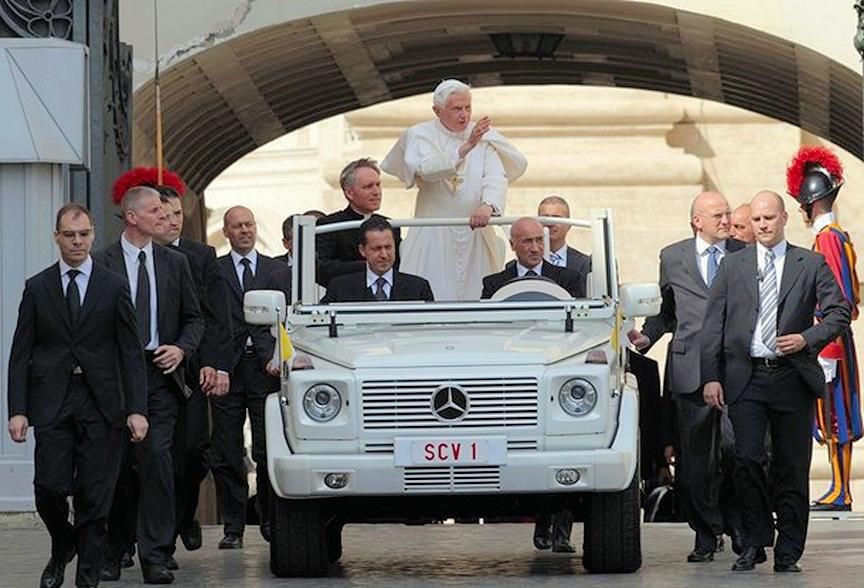
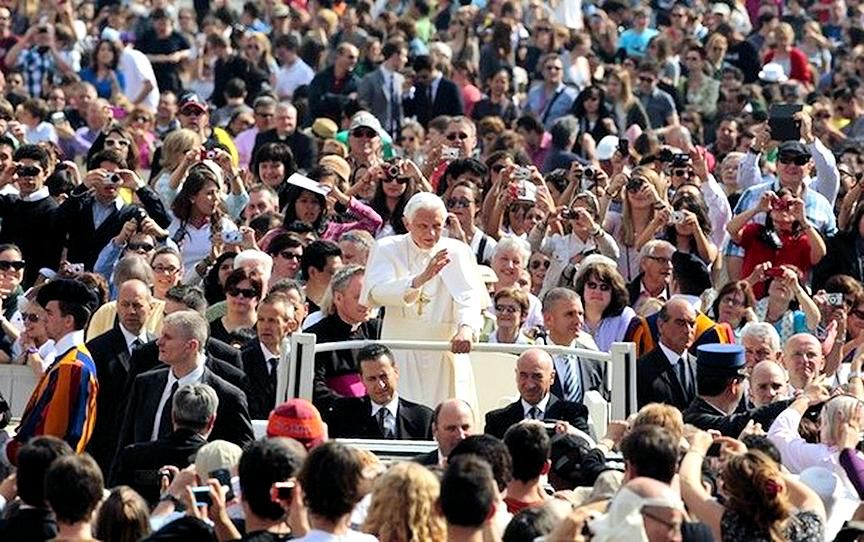
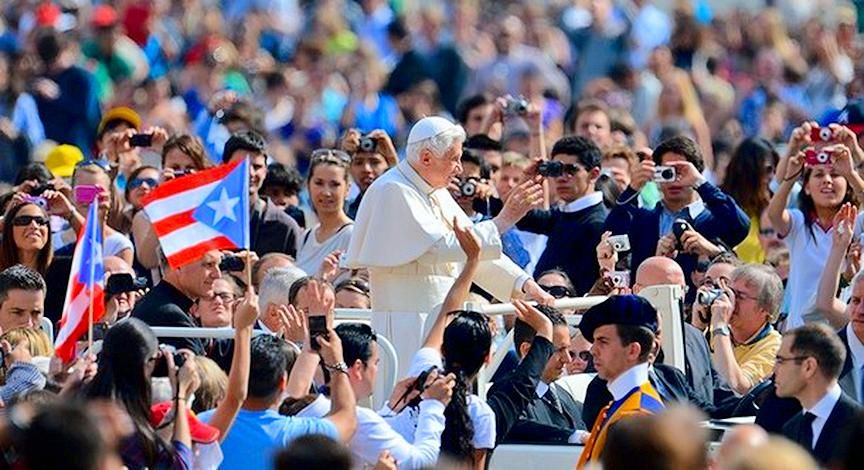
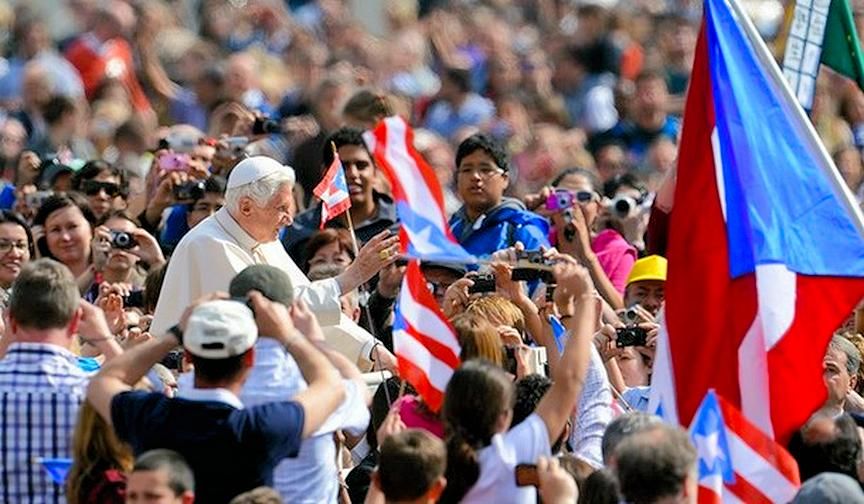
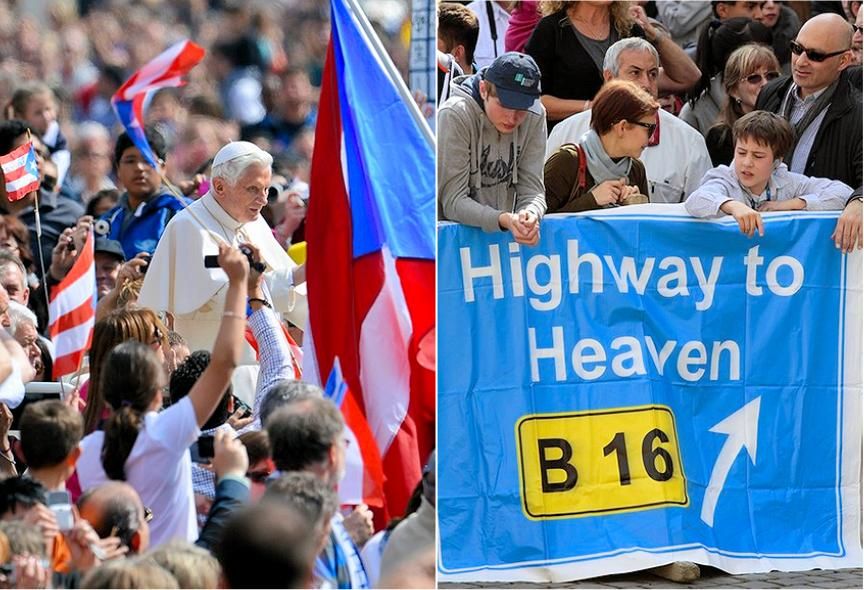
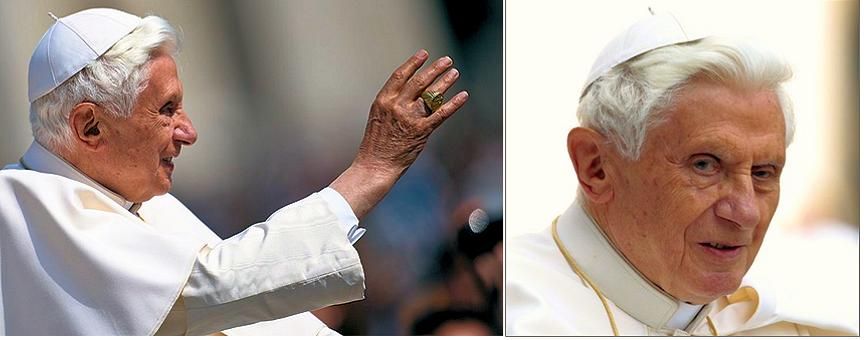 On the recent apostolic trip,
On the recent apostolic trip,
the Paschal Triduum, and
the menace of land mines

April 4, 2012
Some 20,000 pilgrims and tourists filled St. Peter's Square which has already being prepared for the Holy Week liturgies that will culminate in Pope Benedict’s Urbi et Orbi address and benediction to the city of Rome and the world this Easter Sunday.
The Holy Father dedicated most of his catechesis to his recent pilgrimage to Mexico and Cuba, describing the days spent there as “unforgettable” and “etched” in his heart.
But he also stressed that the principal aim of his visit to these nations – beyond press headlines – was to give courage and hope to the Church on the entire continent. And to affirm the need for progress in the recognition of fundamental human rights, including freedom of religion, because there is no progress in any society that "excludes God."
In English, he said:
My recent Apostolic Journey to Mexico and Cuba sought to confirm the people of those countries, and all the peoples of Latin America, in their faith and in the hope which makes it possible to build a just and harmonious social order.
At the liturgies in León, marked by an outpouring of devotion and spiritual joy, I encouraged the Mexican people to let their deep Christian roots inspire their efforts to overcome violence and to work for a better future.
In Cuba, I wished to reaffirm the Church in her public witness to the Gospel and to support the aspirations of all Cubans to a renewed, reconciled and free society. From Santiago de Cuba, I went as a pilgrim to the shrine of Our Lady of Charity of El Cobre and then to Havana, where I prayed for a rebirth of faith, openness to God’s love and respect for the truth about our human dignity and freedom revealed in Christ.
In these days, as we prepare to celebrate the saving events of Christ’s Passover from death to life in the sacred Triduum, may we open our hearts to God’s reconciling love revealed on the Cross. Let us allow that love to transform our lives, and enable us to celebrate with joy the mystery of the resurrection.
I offer a cordial welcome to all the English-speaking visitors present at today’s Audience, including the student groups from England, Ireland and the United States of America. I also greet the participants in the International Gathering of University Students. May your pilgrimage to Rome bear spiritual fruit in a deeper love of Christ and his Church. Upon you and your families I invoke the Lord’s blessings of wisdom, joy and peace. A happy and blessed Easter to all of you!
Tomorrow, the Paschal Triduum begins, when the Church commemorates the Passion and Death of Christ leading to Easter Sunday. Pope Benedict said: “The whole life of Jesus is oriented towards this hour, characterized by two aspects that illuminate each other: this is the hour of passage (metabasis) and the hour of love (agape) until the end."
“By participating in faith in the liturgical celebrations of the Paschal Triduum, we are invited to experience this transformation brought about by agape. Each one of us is loved by Jesus 'to the end', that is to the total gift of Himself on the cross when he cried: 'It is finished!' (Jn 19.30). Let us allow ourselves to be touched by this love, to be transformed, so that the resurrection may really be realized in us. I invite you, therefore, to live the Paschal Triduum intensely, and I wish you all a Holy Easter!”
On Holy Thursday, April 5, the Pope will concelebrate the Chrismal Mass in the Vatican basilica with the cardinals, bishops, and priests present in Rome.
Later in the day he will celebrate the Mass of the Lord’s Supper at the basilica of St. John Lateran.
On Good Friday, in the late afternoon, the Pope will preside at the reading of the Passion, adoration of the Cross, and Communion in the Vatican basilica. In the evening he will travel across town to the Roman Coliseum for the Stations of the Cross.
On Holy Saturday, the Pope will lead the Easter Vigil liturgy in the Vatican Basilica. On Easter Sunday morning, he will celebrate Mass in St. Peter’s Basilica and deliver his “Urbi et Orbi” message from the loggia of the basilica.
After the multilingual greetings, the Holy Father spoke in behalf of the UN-sponsored International Day for Mine Awareness and Assistance in Mine Action today:
Today marks the International Day to raise awareness about the problem of landmines – to the victims of which I express my closeness, as also to their families. I encourage everyone to be committed to freeing humanity from these terrible and devious weapons, which - as Blessed John Paul II said when the [International] Convention for their elimination went into force, keep people from, “walk[ing] together on paths of life without fearing the dangers of destruction and death. (Angelus of February 28th, 1999).
On December 8, 2005, the UN General Assembly declared that April 4 of each year would be observed as the International Day for Mine Awareness and Assistance in Mine Action.
It called for continued efforts by States, with the assistance of the United Nations and relevant organizations, to foster the establishment and development of national mine-action capacities in countries where mines and explosive remnants of war constitute a serious threat to the safety, health and lives of the civilian population, or an impediment to social and economic development at the national and local levels.
Long after wars are waged, mines remain a lurking threat to civilians in the peacetime that follows. Landmines are indiscriminate weapons that wait underground for years and sometimes decades, maiming and killing unsuspecting persons who happen to set them off. In 2010 there were 4,200 victims of landmines - 11 people a day.
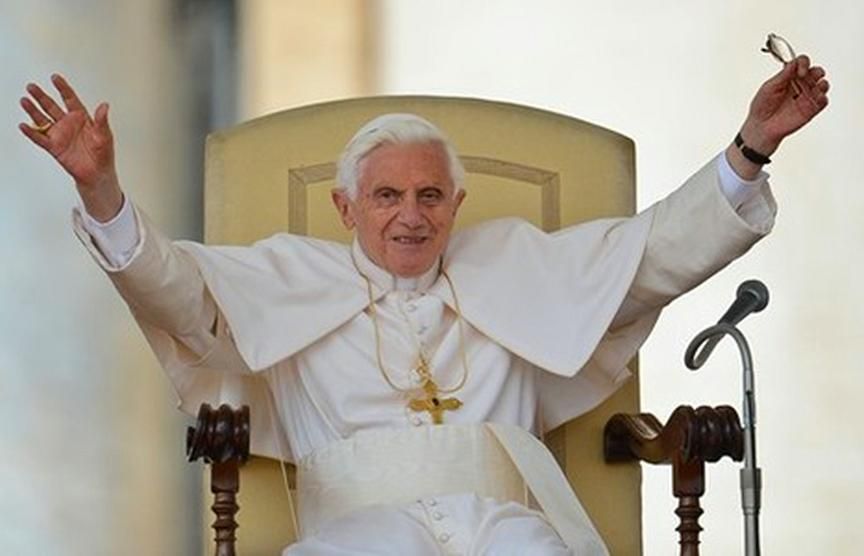
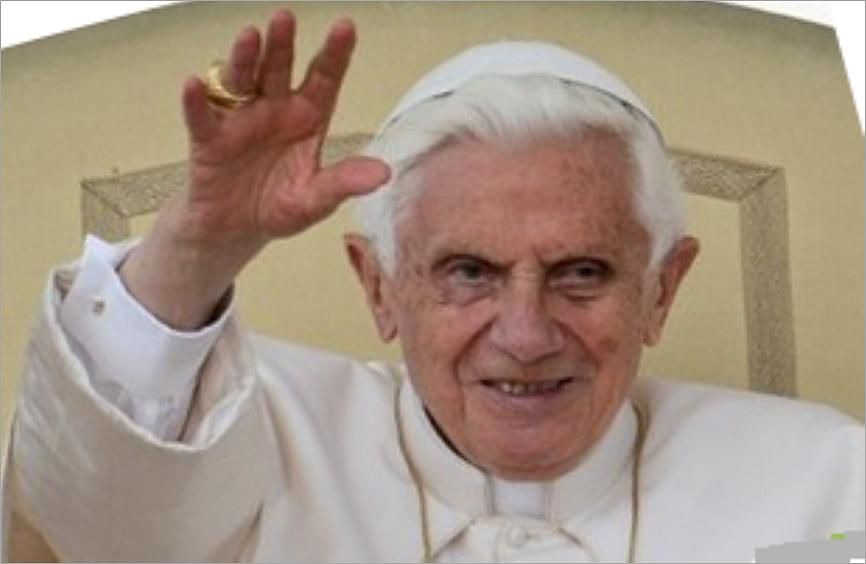
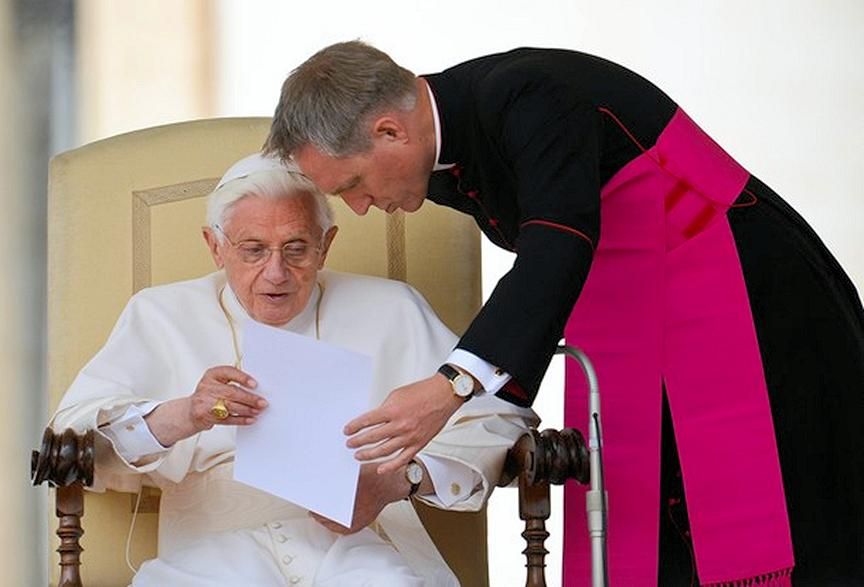
Dear brothers and sisters,
The emotions raised by my recent apostolic visit to Mexico and Cuba, on which I wish to dwell today, are still vivid in me. My spirit spontaneously gives thanks to the Lord, that in his providence, he willed that as the Successor of Peter I should visit these two countries who keep indelible memories of the visits made by Blessed John Paul II.
The bicentenary of the independence of Mexico and other Latin American countries, the twentieth anniversary of diplomatic relations between Mexico and the Holy See, and the fourth centenary of the discovery of the image of the Virgin of Charity of El Cobre in Cuba were the occasions for my pilgrimage.
With the trip, I wished to ideally embrace the entire Continent, asking all Latin Americans to live together in hope and in the concrete commitment to walk together united towards a better future.
I am grateful to the Presidents of Mexico and Cuba, as well as other authorities, who welcomed me with deference and courtesy.
I sincerely thank the Archbishops of Leon, of Santiago de Cuba and Havana and other venerated brothers in 6the episcopate who welcomed me with great affection. and their collaborators and all who generously gave of themselves for this pastoral visit of mine.
There were unforgettable days of joy and hope which will remain impressed in my heart.
The first stop was Leon, in the state of Guanajuato, the geographical center of Mexico. Here, a huge and festive crowd gave me an extraordinary and lively welcome as a sign of the warm embrace of an entire people.
From the arrival ceremony, I could grasp the faith and the warmth shown by the priests, consecrated persons and the lay faithful. In the presence of institutional representatives, many bishops and representatives of various social sectors, I recalled the need to acknowledge and safeguard the fundamental rights of the human being, the foremost being religious freedom and assured my closeness to those who suffer because of social scourges, old and new conflicts, corruption and violence.
With profound gratitude, I relive the thought of that interminable line of people along the streets who accompanied me with their enthusiasm. In those hands extended in greeting and affection, in those happy faces, in their cries of joy, I caught the tenacious hope of Mexican Christians, a hope that remained lit in their heats despite these difficult times of violence, which I could not fail to deplore, and to the victims of whom I hold deep-felt thoughts, and to a few of whom I was able to offer personal comfort.
On the same day, I met so many children and adolescents, who are the future of the nation and the Church. Their inexhaustible joy, expressed in resounding song and music, and their faces and their actions, expressed the strong desire of all the young people of Mexico, of Latin America and the Caribbean, to be able to live in peace, serenity and harmony, in a society that is more just and reconciled.
The disciples of the Lord should make the joy of Christians grow - the joy of belonging to his Church. This joy gives birth to the energies needed to serve Christ in situations of difficulty and suffering.
I recalled this truth to the immense crowd gathered for the Sunday Eucharistic celebration in Leon's Parco Bicentenario. I called on everyone to trust in the goodness of almighty God who can change unbearably dark situations from within, from the heart,
The Mexicans responded with their ardent faith, and in their believing adherence to the Gospel, I recognized once more comforting signs of hope for the Continent.
The last event of my visit to Mexico was the celebration of Vespers at the Cathedral of Our Lady of Light in Leon, with the Mexican bishops and representatives of the episcopates of America.
I manifested my closeness to their commitment in the face of various challenges and difficulties, and my gratitude wto those who sow the Gospel in complex situations which are often not devoid of limitations.
I encouraged them to be zealous pastors and sure-footed guides, inspiring everywhere sincere communion and sincere adherence to the teachings of the Church.
hus I left the beloved land of Mexico, where I experienced a special devotion and affection for the Vicar of Christ. Before leaving, I urged the Mexican people to remain faithful to the Lord and his Church, well-anchored in their own Christian roots.
The second part of my apostolic trip was in Cuba, where I went, above all, to sustain the mission of the Church in Cuba, which has been engaged in announcing the Gospel with joy, despite its poor means and the difficulties that still have to be overcome so that religion can carry out its spiritual and formative service in the public sphere of society.
I wished to underscore this upon arriving in Santiago de Cuba, the island's second most important city, while not failing to acknowledge the good relations between the Cuban State and the Holy See, aimed at establishing the living constructive presence of the Church in Cuba.
Among other things, I gave assurances that the Pope carries in his heart the concerns and aspirations of all Cubans, especially those who suffer from lack of freedom.
The first Holy Mass that I had the joy to celebrate on Cuban soil took place in the context of the fourth centenary of the finding of the image of the Virgin of Charity of El Cobre, patroness of Cuba.
It was an occasion of strong spiritual intensity, with the attentive and prayerful participation of tens of thousands of people, the sign of a Church that is emerging from situations that were not easy, but is doing so with visible testimonials of charity and of an active presence in the life of the people.
To Cuban Catholics, who, along with the entire population, hope for a better future, I addressed an invitation to give new vigor to their faith, and to contribute, with the courage of forgiveness and understanding, to the construction of an open and renewed society, where there will always be more space for God, because when God is set aside, the world becomes a place inhospitable to man.
Before leaving Santiago de Cuba, I went to the Shrine of Our Lady of Charity in El Cobre, so beloved to the Cuban people. The pilgrimage of the Virgin's image among the families of the whole island had aroused great spiritual enthusiasm, representing a significant event of new evangelization, and an occasion to rediscover the faith. To the Virgin Mary, I entrusted, most of all, everyone who suffers as well as the young Cubans.
The second Cuban stop was Havana, capital of the island. Young people, in particular, were the main protagonists of the exuberant welcome given to me during the ride from the airport to the Nunciature, where I had the opportunity to meet the bishops of the land in order to discuss the challenges that the Cuban Church is called on to face. knowing that the people have been looking to her with increasing trust.
The following day, I presided at Holy Mass in the main square of Havana which was filled with people. To all, I reminded that Cuba and the world need change, but that this can only happen if everyone opens up the the integral truth about man, the indispensable prerequisite for achieving freedom, and decides to sow reconciliation and brotherhood around himself, basing his own life on Jesus Christ.
Only he can dispel the darkness of error, helping us to defeat evil and everything that oppresses us. I wished, among other things, to reiterate that the Church does not seek privileges, but only to be able to proclaim and celebrate the faith publicly, carrying the Gospel message of peace and hope into every part of society.
Appreciating the steps that have been taken so far in this sense by Cuban authorities, I underscored that it is necessary to continue along this path of ever greater religious freedom.
When I left Cuba, tens of thousands of Cubans came to send me off, lining the streets to the airport despite heavy rain. In the departure ceremony, I recalled that today, the various components of Cuban society are called on to an effort of sincere collaboration and patient dialog for the good of the nation.
In this perspective, I wanted my presence on the island as a witness for Jesus Christ to be an encouragement for Cubans to open the doors of their heart to him who is the source of hope and strength that can make goodness grow.
And so I bade farewell to the Cubans, exhorting them to revive the faith of their fathers and build an ever better future.
This trip to Mexico and Cuba, thank God, had the desired pastoral outcome. May the Mexican and Cuban peoples derive abundant fruits from it to construct a future of peace and fraternity in ecclesial communion and with evangelical courage.
Dear friends, tomorrow afternoon, with the Holy Mass of the Lord's Supper, we enter the Paschal Triduum, the peak of the liturgical year, in order to celebrate the central mystery of the faith: the passion, death and resurrection of Christ.
In the Gospel of St. John, this culminating moment of the mission of Jesus is called his 'hour', which opens with the Last Supper. The Gospel introduces it thus: "Before the feast of Passover, Jesus knew that his hour had come to pass from this world to the Father. He loved his own in the world and he loved them to the end" (Jn 13,1).
All of Christ's life was oriented to this hour, characterized by two aspects which illuminate each other: it is the hour of 'passage' (metabasis) and the hour of 'love (agape) to the very end".
In effect, it is truly divine love, the Spirit with which Jesus was filled, that allowed Jesus to 'pass' through the abyss of evil and death to emerge into the new 'space' of the resurrection.
It is agape, love, that works this transformation. enabling Jesus to go beyond the limits of the human condition marked by sin, and to overcome the barrier that keeps man prisoner, separated from God and eternal life.
Participating with faith in the liturgical celebrations of the Paschal Triduum, we are invited to live this transformation enabled by agape. Each of us is loved Jesus 'to the very end', up to his total self-giving on the Cross, when he cried out: "It is finished!" (Jn 19,30).
Let us allow this love to reach us, let us allow ourselves to be transformed in order that the resurrection can truly be realized in ourselves. I therefore call on you to live the Paschal Triduum with intensity, and I wish everyone a Holy Easter. Thank you.
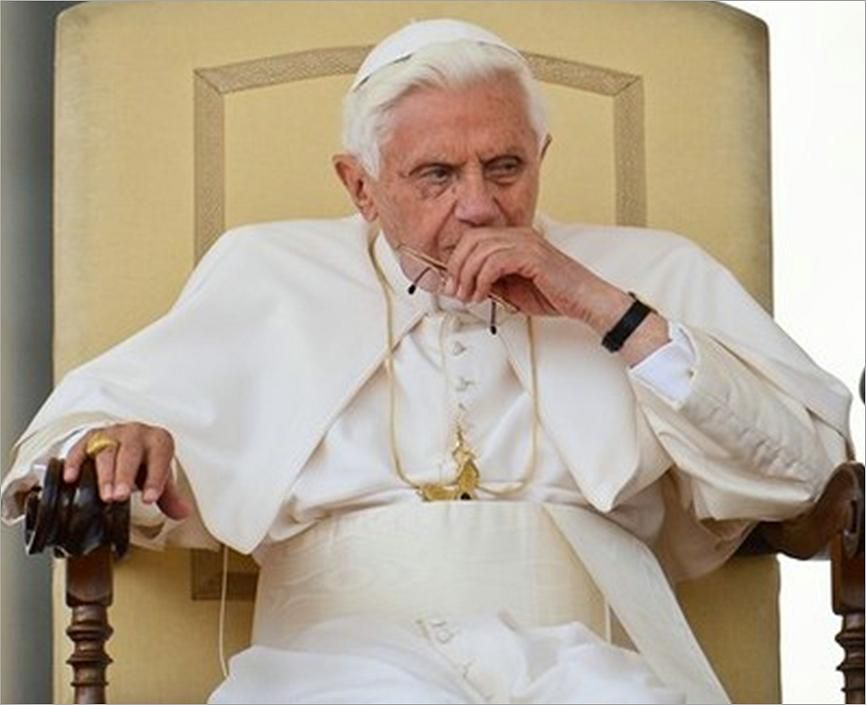
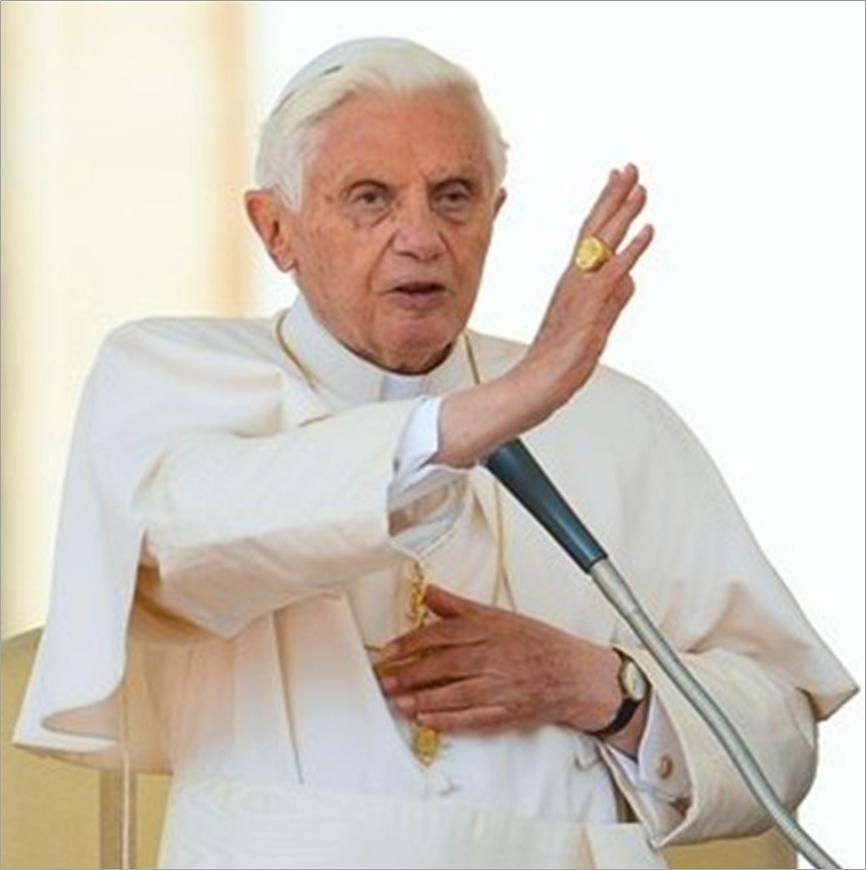
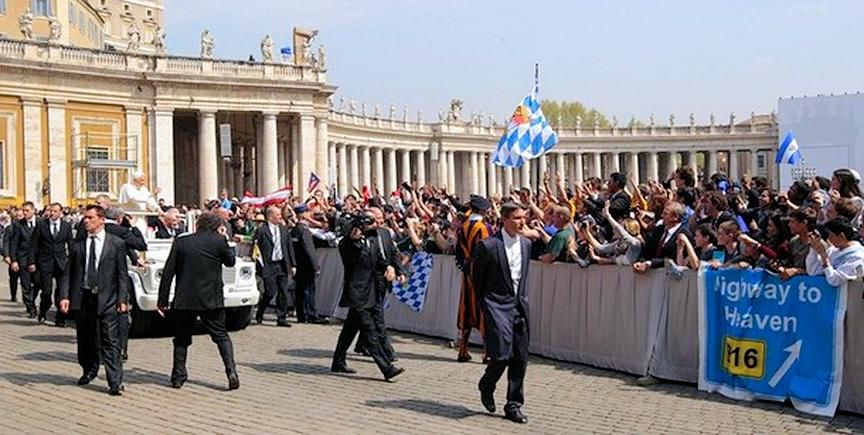
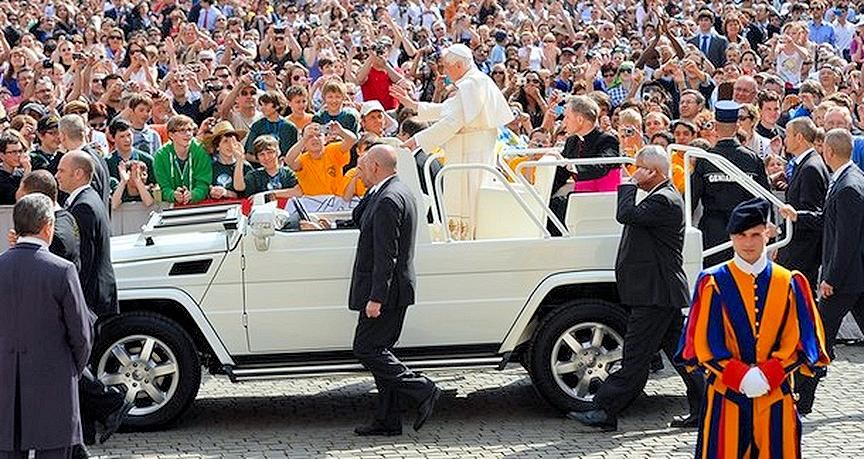 Giant Easter egg for the Pope
Giant Easter egg for the Pope
will go to a juvenile detention center
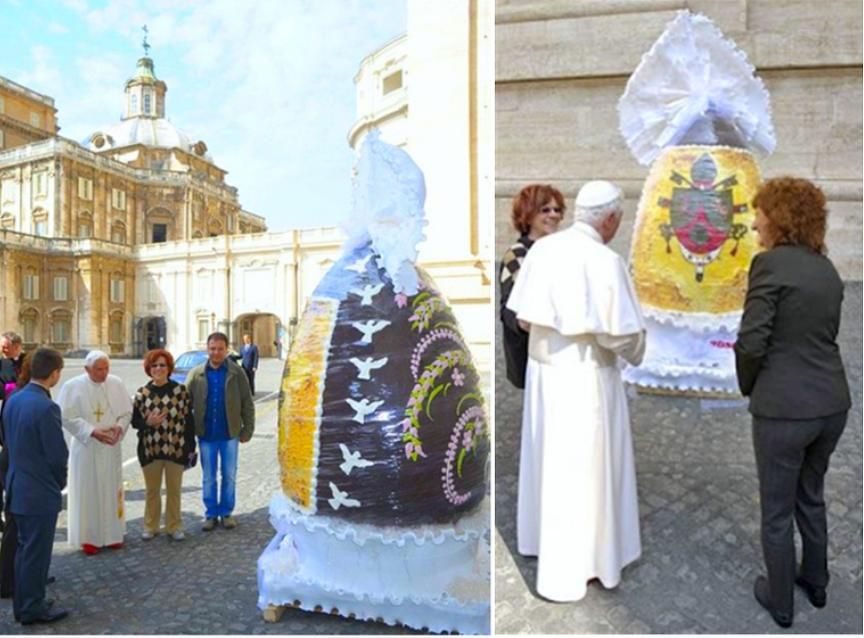
After the General Audience, the Holy Father was presented with a giant chocolate Easter egg 2.2 meters tall and weighing 250 kilograms by the owners of a thriving business in home-style bakery products, Tosca di Casalbuttano in Cremona, northern Italy.
The Vatican announced that the Pope is donating the egg to the juvenile detention center of Casal del Marmo in Rome (visited by the Pope in 2008). [If there are 250 detainees, it means each of them gets a kilogram of chocolate!]
In 1996, the same company gave John Paul II a similar Easter egg.
[Modificato da TERESA BENEDETTA 06/04/2012 16:32]